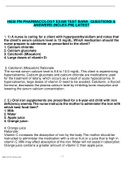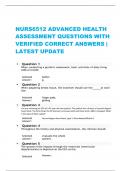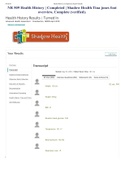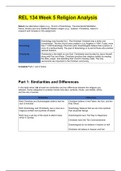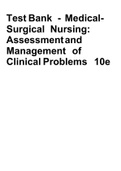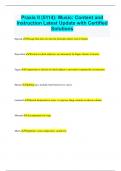Exam (elaborations)
HESI PN Pharmacology Exam Test Bank Questions & Answers (NCLEX-PN) Latest 2022 //2023.
- Course
- Institution
HESI PN Pharmacology Exam Test Bank Questions & Answers (NCLEX-PN) Latest 2022 //2023.HESI PN Pharmacology Exam Test Bank Questions & Answers (NCLEX-PN) Latest 2022 //2023.HESI PN Pharmacology Exam Test Bank Questions & Answers (NCLEX-PN) Latest 2022 //2023.HESI PN Pharmacology Exam Test Bank Quest...
[Show more]
